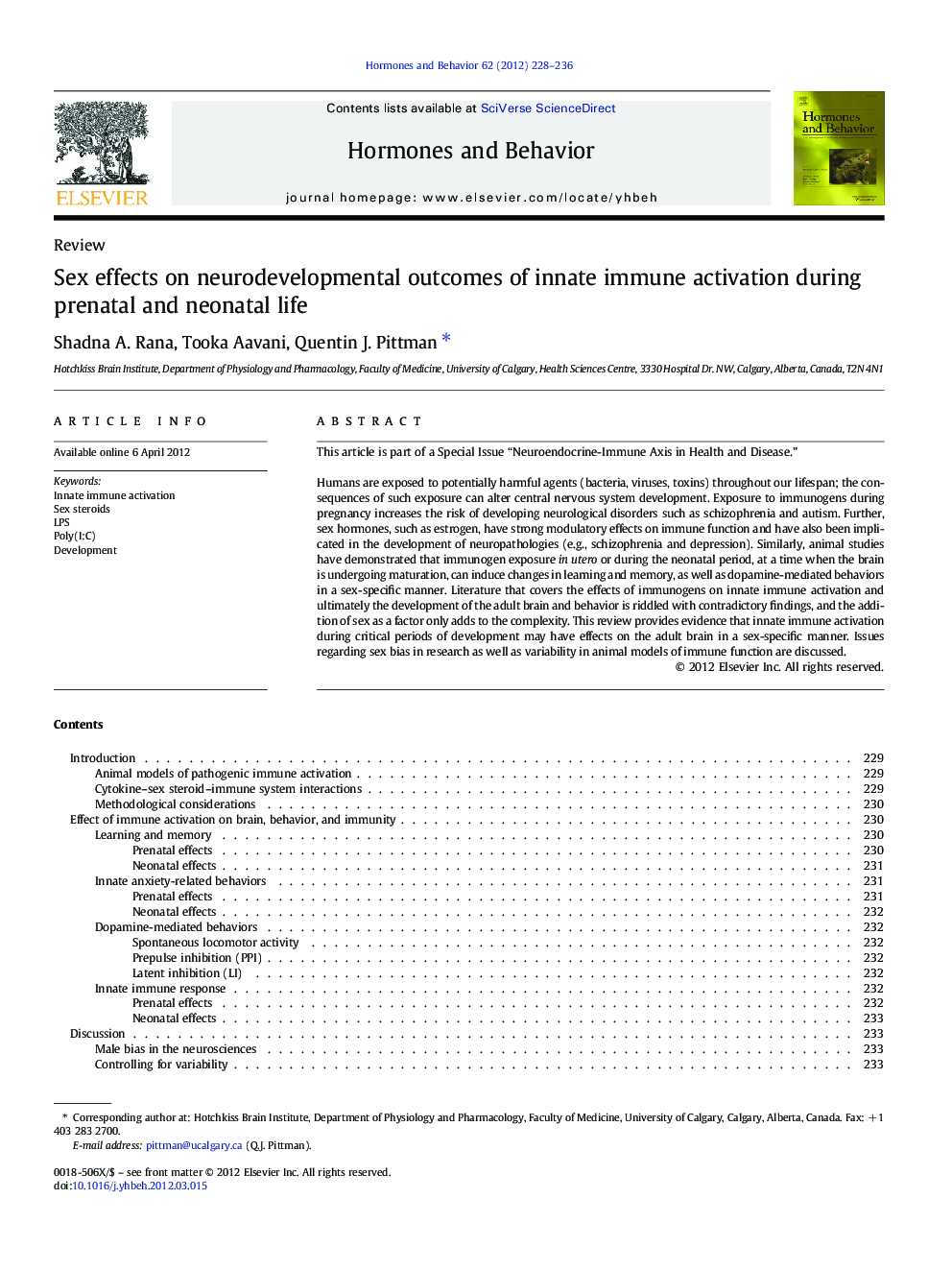| Article ID | Journal | Published Year | Pages | File Type |
|---|---|---|---|---|
| 323098 | Hormones and Behavior | 2012 | 9 Pages |
This article is part of a Special Issue “Neuroendocrine-Immune Axis in Health and Disease.”Humans are exposed to potentially harmful agents (bacteria, viruses, toxins) throughout our lifespan; the consequences of such exposure can alter central nervous system development. Exposure to immunogens during pregnancy increases the risk of developing neurological disorders such as schizophrenia and autism. Further, sex hormones, such as estrogen, have strong modulatory effects on immune function and have also been implicated in the development of neuropathologies (e.g., schizophrenia and depression). Similarly, animal studies have demonstrated that immunogen exposure in utero or during the neonatal period, at a time when the brain is undergoing maturation, can induce changes in learning and memory, as well as dopamine-mediated behaviors in a sex-specific manner. Literature that covers the effects of immunogens on innate immune activation and ultimately the development of the adult brain and behavior is riddled with contradictory findings, and the addition of sex as a factor only adds to the complexity. This review provides evidence that innate immune activation during critical periods of development may have effects on the adult brain in a sex-specific manner. Issues regarding sex bias in research as well as variability in animal models of immune function are discussed.
► Mixed results due to variability in methodology used across laboratories. ► Females are grossly underrepresented in human and basic research. ► Research should include both sexes since many disorders are gender biased.
